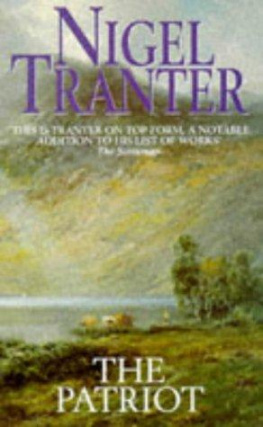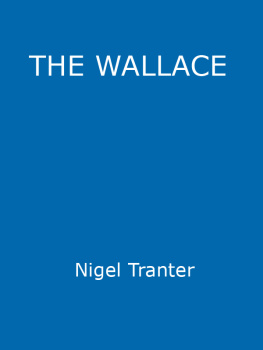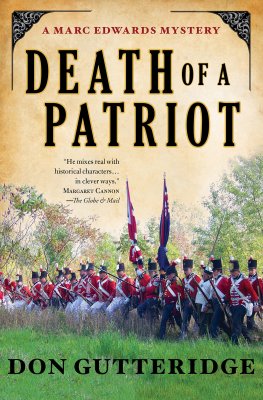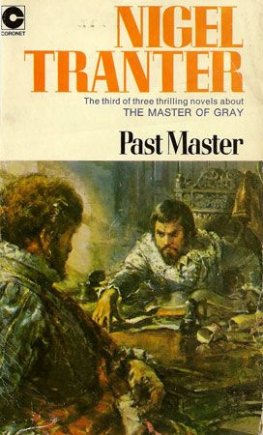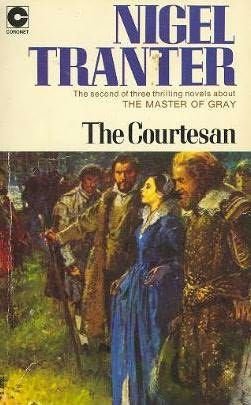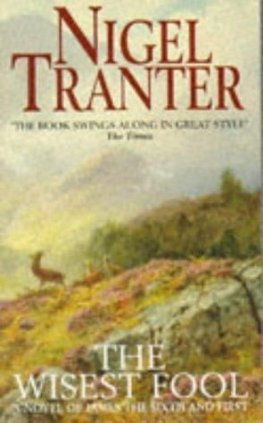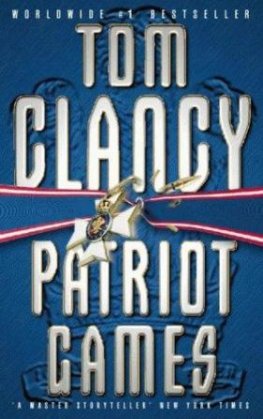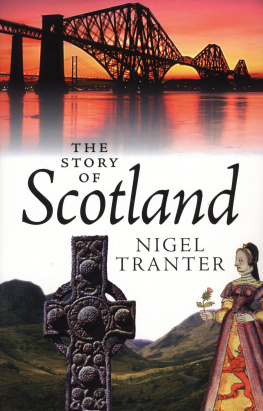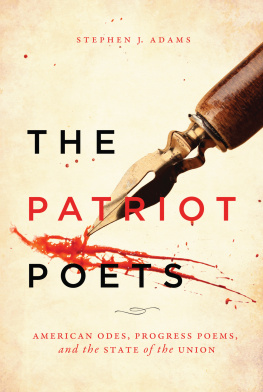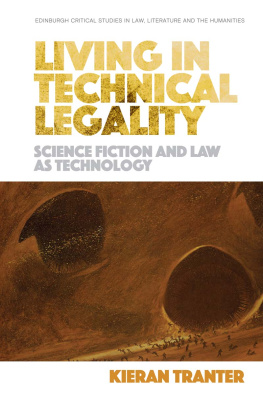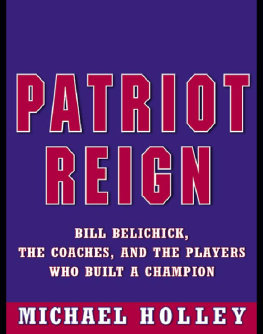Tranter - The Patriot
Here you can read online Tranter - The Patriot full text of the book (entire story) in english for free. Download pdf and epub, get meaning, cover and reviews about this ebook. year: 1994, publisher: Hodder & Stoughton Ltd, genre: Art. Description of the work, (preface) as well as reviews are available. Best literature library LitArk.com created for fans of good reading and offers a wide selection of genres:
Romance novel
Science fiction
Adventure
Detective
Science
History
Home and family
Prose
Art
Politics
Computer
Non-fiction
Religion
Business
Children
Humor
Choose a favorite category and find really read worthwhile books. Enjoy immersion in the world of imagination, feel the emotions of the characters or learn something new for yourself, make an fascinating discovery.
The Patriot: summary, description and annotation
We offer to read an annotation, description, summary or preface (depends on what the author of the book "The Patriot" wrote himself). If you haven't found the necessary information about the book — write in the comments, we will try to find it.
The Patriot — read online for free the complete book (whole text) full work
Below is the text of the book, divided by pages. System saving the place of the last page read, allows you to conveniently read the book "The Patriot" online for free, without having to search again every time where you left off. Put a bookmark, and you can go to the page where you finished reading at any time.
Font size:
Interval:
Bookmark:
| Published: | 1994 |
| Tags: | Historical Novel Historical Novelttt |
THE PATRIOT
'Dear God - and this is Scotland! Like a rudderless ship in a storm! Is there nobody left in the land to grasp the helm? No spirit surviving in this ancient nation? Have we become a race of serfs, cowards and toadies?'
'Not that, Andrew - never that, surely. But ... we require a lead. It is leadership we lack. Our natural leaders seem to have died out. Many, to be sure, have been executed, or driven into exile. As were you. But you, at least, have come back!'
'Yes, yes - we have a leader, one leader again!' Margaret exclaimed, in a rush, eyes shining.
'But do not look on me as one of Scotland's leaders, see you. I have neither the stature nor the station and standing. But I will do what I can. Oh, yes - I will do what I can, God aiding me!'
Also by the same author,
and available in Coronet Books:
Lords of Misrule
The Wisest Fool
Black Douglas
Montrose: The Young Montrose
Montrose: The Captain General
MacBeth The King
The Wallace
Robert The Bruce Trilogy:
Book 1 - The Steps To The Empty Throne
Book 2 - The Path Of The Hero King
Book 3 - The Price Of The King's Peace
The Patriot
Nigel Tranter
CORONET BOOKS Hodder and Stoughton
Copyright 1982 by Nigel Tranter
First published in Great Britain 1982 by Hodder & Stoughton Ltd
Coronet edition 1984
British Library C.i.P.
Tranter, Nigel The patriot. I. Title 823'912 [F]
PR6070.R34
ISBN 0-340-34915-8
The characters and situations in this book are
entirely imaginary and bear no relation to any real person or
actual happening
This book is sold subject to the condition that it shall not, by way or trade or otherwise, be lent, re-sold, hired out or otherwise circulated without the publisher's prior consent in any form of binding or cover other than that in which this is published and without a similar condition including this condition being imposed on the subsequent purchaser.
Printed and bound in Great Britain for Hodder and Stoughton Paperbacks, a division of Hodder and Stoughton Ltd., Mill Road, Dunton Green, Sevenoaks, Kent (Editorial Office: 47 Bedford Square, London, WC1 3DP) by Richard Clay (The Chaucer Press), Ltd., Bungay, Suffolk
Principal Characters
In Order of Appearance
Andrew Fletcher : Laird of Saltoun, East Lothian, a rich property.
John Maitland, Duke of Lauderdale : Secretary of State; Lord High Commissioner to the Scots Parliament.
John Hamilton of Beil : Another young laird, later 2 nd Lord Belhaven & Stenton.
John Hamilton, Lord Belhaven and Stenton : Uncle of above.
William Douglas, Duke of Hamilton : Premier Scots peer. John Leslie, Earl of Rothes : Chancellor of Scodand, later Duke.
Archibald Campbell, 9th Earl of Argyll : MacCailean
Mor, chief of Clan Campbell.
Henry Fletcher : Brother of Andrew.
Sir David Carnegie of Pitarrow : Brother of the Earl of Southesk, legal luminary.
Margaret Carnegie : Daughter of above.
John Graham of Claverhouse : Laird and soldier, later Viscount of Dundee. (Bonnie Dundee of the ballad.)
James Stewart or Crofts or Scott, Duke of Buccleuch & Monmouth : Son of Charles the Second; Captain-General of the royal forces.
James Stewart, Duke of York : Brother of Charles; later James the Second and Seventh.
Sir James Dalrymple of Stair : Lord President of the Court of Session. Later Viscount Stair.
Rev. Dr. Gilbert Burnet : Scots scholar and divine, former tutor to Andrew and Henry Fletcher. Later Bishop of Salisbury.
Sir Patrick Home of Polwarth : Border laird, later Lord Polwarth and Earl of Marchont.
Alderman Heywood Dare : Taunton jeweller. Purse-bearer to Duke of Monmouth.
Prince William of Orange : Stadtholder of Holland. Later King William the Third.
Princess Mary : Wife of above. Elder daughter of James, Duke of York. Later Queen.
William Paterson : Banker. Founder of the Bank of England. Initiator of the Darien Scheme.
John Hay, Earl of Tweeddale : Great Scots lord. Later Chancellor and Marquis.
Robert Kerr, Earl of Lothian : Great Scots lord. Later Marquis.
John Ker, Earl of Roxburghe : Great Scots lord. Later Duke.
Sir James Montgomery of Skelmorlie : Baronet and lawyer.
Sir John Dalrymple, Master of Stair : Secretary of State, son of Stair. Later first Earl of Stair.
John Campbell of Glenorchy, Earl of Breadalbane: Great Highland lord.
Rob Roy MacGregor of Inversnaid : Captain of Glengyle Highland Watch.
William Douglas, Duke of Queensberry : Lord High Commissioner.
James Ogilvie, Earl of Findlater , later Seafield : Secretary of State and Chancellor.
John Churchill, Duke of Marlborough : Captain-General of royal forces.
Part One
The young man frowned as he dismounted in the Sidegate of Haddington. He was, to be sure, a ready frowner; but then, he was a ready smiler too, mobile and expressive of feature, quick to reflect his emotions, temperament and temper both far from placid. His frown now was directed not so much at the clutter of men and horses, children and dogs, all but blocking the street outside Haddington House, which must cause him difficulty in gaining access to the building; for this he was not wholly unprepared, for it was a special occasion. Wh at he had not looked to see was the great coach with its six matching bays and lounging flunkeys and outriders, which all but filled the courtyard of the L-shaped tower-house, dominating all. He did not require to examine the vulgar display of paintwork on the carriage-door, surmounted by the newly-repainted coronet, from earl's to duke's, to recognise whose equipage it was.
He found an urchin to hold his mare, nodded to Willie Bryce, Baron-Baillie of the Nungate, who appeared to be in charge outside, and pushed his way through the crush to the forestair and main doorway, where two burgh officers stood guard, reinforced by two of the Duke's own men wearing steel breastplates painted with coronets, hands arrogantly on sword-hilts. The town-guards knew Andrew Fletcher, however, and passed him inside, with only cold stares from the other pair.
The interior of the house was as crowded as was the Sidegate outside, each of the fine first-floor chambers spilling people out into the hallway and corridors, what they were all finding to do not clear. The place stank, despite its excellent proportions, fine panelling and rich decoration, and not just on account of the throng in the June warmth but because the dark basement cellars below were still serving as overflow for the town-gaol, the Tolbooth in the High Street. In the year of Our Lord, 1678, the gaols of Scotland could be guaranteed to require some extra accommodation.
The young man guessed that what he sought would be found in the finest apartment, the former hall of the house. This, in fact, proved to be the least crowded, folk needfully keeping their distance. Only half-a-dozen men flanked the great central table with its papers, quills, inkwells, wine-flagons and goblets - and of that number three hovered about the gross, florid, fleshy man who lounged midway on the window-side, wineglass in hand. Of the other two, one, elderly, short, thick-set but neat, in markedly plainer clothing but wearing a chain-of-office, sat at the head of the table, hands clasped in front of him; the other, a thin, elderly and clerkly individual, bent of shoulder, kept his head well down and his quill scratching over paper.
The young newcomer removed his broad-rimmed hat and bowed - but not too deeply. It was the little man with the chain that he saluted first - for in his own burgh, in theory, the provost ranked supreme. Nevertheless, it was the other, the big, heavy, over-dressed individual further down the table, who spoke.
Font size:
Interval:
Bookmark:
Similar books «The Patriot»
Look at similar books to The Patriot. We have selected literature similar in name and meaning in the hope of providing readers with more options to find new, interesting, not yet read works.
Discussion, reviews of the book The Patriot and just readers' own opinions. Leave your comments, write what you think about the work, its meaning or the main characters. Specify what exactly you liked and what you didn't like, and why you think so.

